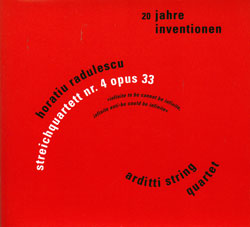
Horatiu Radulescu's String Quartet No 4, opus 33 (1976-87) performed by the Arditti String Quartett at IRCAM/Centre Pompidou Paris in 1996.
In Stock
Quantity in Basket: None
Log In to use our Wish List
Shipping Weight: 4.00 units
EU & UK Customers:
Discogs.com can handle your VAT payments
So please order through Discogs
Sample The Album:
Arditti String Quartet:
Rohan de Saram-cello
Garth Knox-viola
Irvine Arditti-violin
Graeme Jennings-violin
Click an artist name above to see in-stock items for that artist.
16 page booklet with text in German and English.
Label: Edition Rz
Catalog ID: ed. Rz 4002
Squidco Product Code: 14208
Format: CD
Condition: New
Released: 2001
Country: Germany
Packaging: Cardstock foldover
Recorded in February of 1996 at IRCAM/Centre Pompidou Paris.
Horatiu Radulescu's String Quartet No 4, opus 33 (1976-87) performed by the Arditti String Quartett at IRCAM/Centre Pompidou Paris in 1996.
"infinite to be cannot be infinite, infinite anti-be could be infinite" for nine string quartets or one string quartet surrounded by an imaginary Viola da Gamba with 128 strings.
"Horatiu Radulescu was a Romanian-French composer, best known for the spectral technique of composition. Radulescu's spectral techniques, as they evolved through the 1970s and beyond, are quite distinct from those of his French contemporaries Gérard Grisey and Tristan Murail. His compositional aim, as outlined in his book Sound Plasma (1975; see Sources) was to bypass the historical categories of monody, polyphony and heterophony and to create musical textures with all elements in a constant flux. Central to this was an exploration of the harmonic spectrum, and by the invention of new playing techniques to bring out, and sometimes to isolate, the upper partials of complex sounds, on which new spectra could be built."-Wikipedia
16 page booklet with text in German and English.
Artist Biographies
• Show Bio for Rohan de Saram "Deshamanya Rohan de Saram (born 9 March 1939) is a British-born Sri Lankan cellist. Until his thirties he made his name as a classical artist, but has since become renowned for his involvement in and advocacy of contemporary music. He travels widely and is much in demand for workshops and summer schools in addition to sustaining a schedule of adventurously programmed concerts. Rohan de Saram was born to Ceylonese parents in Sheffield, Yorkshire, England. At age eleven he studied with Gaspar Cassad— in Siena and Florence. In 1955 at the age of 16 he was the first winner of the Guilhermina Suggia Award, enabling him to study in the UK with Sir John Barbirolli and in Puerto Rico with Pablo Casals. Casals said of him "There are few of his generation that have such gifts". In the following year he won a Harriet Cohen International Music Award. At the invitation of Dimitri Mitropoulos, who described him in 1957 as "a rare genius...a born musician... an amazing...cellist", Rohan was invited to give his Carnegie Hall debut in 1960 with the New York Philharmonic, playing Khachaturian's Cello Concerto under the baton of Stanis aw Skrowaczewski. Gregor Piatigorsky presented him with a special bow. He has lived in London since 1972, first and foremost as a performer, although he has also taught at Trinity College of Music, London. From 1979 to 2005 de Saram was a member of the Arditti Quartet but now works with other artists to pursue his own artistic vision. He has also toured and recorded with Markus Stockhausen's "Possible Worlds" group. He worked personally with Zolt‡n Kod‡ly, Francis Poulenc, Sir William Walton and Dmitri Shostakovich. He has performed with the major orchestras of Europe, USA, Canada, Australia and the former Soviet Union with conductors such as Barbirolli, Sir Adrian Boult, Zubin Mehta, Seiji Ozawa and William Steinberg. In ensemble or as a soloist, he has premiered works by Luciano Berio, Bose, Benjamin Britten, Sylvano Bussotti, John Cage, Sir Peter Maxwell Davies, Philip Glass, Sofia Gubaidulina, Paul Hindemith, Mauricio Kagel, Gyšrgy Ligeti (Racine 19), Conlon Nancarrow, Henri Pousseur, Wolfgang Rihm, Jeremy Dale Roberts (Deathwatch Cello Concerto, written for de Saram), Alfred Schnittke, Iannis Xenakis (Kottos ) and Toshio Hosokawa (the concerto Chant for cello and orchestra). Berio was so impressed by his performance of Il Ritorno degli Snovidenia that he wrote Sequenza XIV (2002) specially for de Saram, incorporating drumming on the body of the cello drawn from de Saram's skills with the Kandyan drum. The work was given its world and numerous national premieres by de Saram who then also made the premiere recording. He plays the standard classical cello works, including the great concerti, sonata cycles and Bach's six Solo Cello Suites. He founded the De Saram Clarinet Trio and a duo with his brother Druvi de Saram. He is one of relatively few new music interpreters to have explored the world of improvisation. He has made numerous recordings, both with the Arditti Quartet and as soloist, including Vivaldi's Sonatas, Edmund Rubbra's Soliloquy for cello and orchestra, Britten's Cello Suites No 1-3, John Mayer's Ragamalas and Prabhanda, Xenakis' Kottos and Elliott Carter's Figment I and II, and works by Bernd Alois Zimmermann, Peter Ruzicka, Gelhaar, Pršve and Steinke. 2011 releases include Harmonic Labyrinth with Preethi de Silva, and the first of two volumes of de Saram in Concert featuring magnificent Wigmore Hall performances of the Kodaly Sonata for Solo Cello (his score carries Kodaly's hand-written praise for his performance before the composer in May 1960), together with the Rachmaninoff Cello Sonata, in which he is accompanied by his brother Druvi." ^ Hide Bio for Rohan de Saram • Show Bio for Garth Knox "Garth Knox was born in Ireland and grew up in Scotland. Being the youngest of four children who all played string instruments, he was encouraged to take up the viola, and he quickly decided to make this his career. He studied at the Royal College of Music in London with Fredrick Riddle, where he won several prizes for viola and for chamber music. Thereafter he played with most of the leading groups in London in a mixture of all repertoires, from baroque to contemporary music. In 1983 he was invited by Pierre Boulez to become a member of the Ensemble Intercontemporain in Paris, where he had the chance to do much solo playing (including concertos directed by Pierre Boulez) and chamber music, touring widely and playing in international festivals. In 1990 Garth Knox joined the Arditti String Quartet, playing in all the major concert halls of the world, working closely with and giving first performances of pieces by most of today's leading composers including Ligeti, Kurtag, Berio, Xenakis, Lachenmann, Cage, Feldman and Stockhausen (the famous "Helicopter Quartet"). Since leaving the quartet in 1998, Garth Knox has given premieres by Henze (the Viola Sonata is dedicated to him), Ligeti, Schnittke, Ferneyhough, James Dillon, George Benjamin and many others. He also collaborates regularly in theatre and dance projects and has written and performed shows for children and young audiences. Improvisation is also an important part of his musical activity, and he has performed with George Lewis, Steve Lacy, Joel LŽandre, Dominique PifarŽly, Bruno Chevillon, Benat Achiary, Scanner and many others. He appears on the Frode Haltli CD Passing Images. In the past decade he has begun to write his own music, and is much in demand for theatre, dance and film scores as well as concert pieces and instrumental works. Garth Knox has recently begun to explore the possibilities of the viola d'Őamore in new music, with and without electronics, and is in the process of creating a new repertoire for this instrument. His CD D'Amore (EMI New Series 1925) features old and new music for the viola d'amore. Garth Knox now lives in Paris playing recitals, concertos and chamber music concerts all over Europe, the USA and Japan. His solo CD with works from Ligeti, Dusapin, Berio, Kurt‡g and others (MO 782082) won the coveted Deutsche Schallplaten Preis in Germany." ^ Hide Bio for Garth Knox
3/31/2025
Have a better biography or biography source? Please Contact Us so that we can update this biography.
3/31/2025
Have a better biography or biography source? Please Contact Us so that we can update this biography.
Track Listing:
1. String Quartet no. 4 opus 33 49:06
Compositional Forms
Avant-Garde
Stringed Instruments
Instant Rewards
Search for other titles on the label:
Edition Rz.


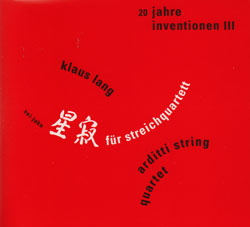
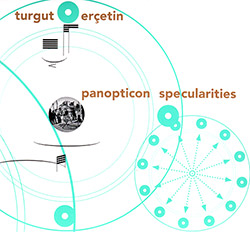
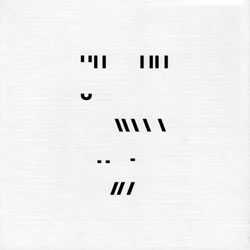

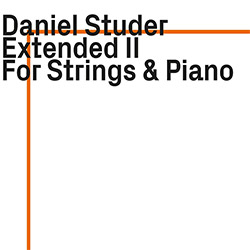
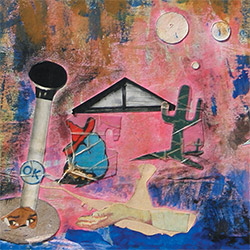
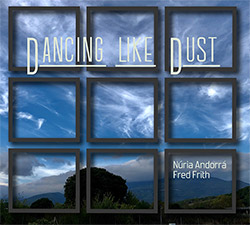

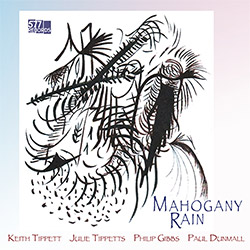
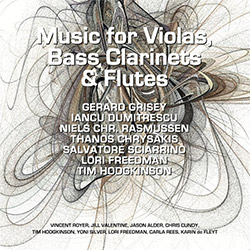


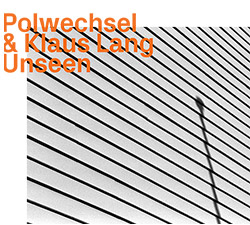
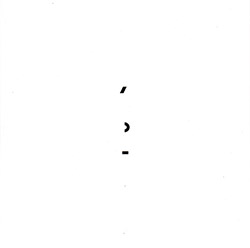








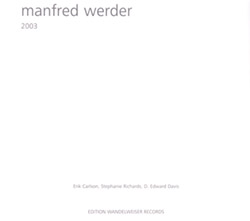
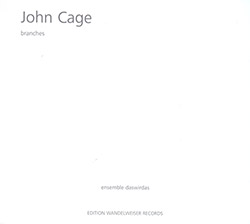
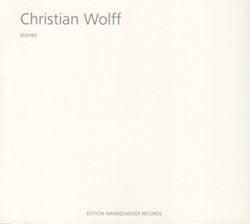


![Rodrigues, Ernesto / Nuno Torres / Guilherme Rodrigues: Whispers In The Moonlight - In Seven Movements [2CDs]](https://www.teuthida.com/productImages/misc4/35765.jpg)



![Cocks, Laura: FATHM [VINYL]](https://www.teuthida.com/productImages/misc4/36055.jpg)










![Ackerley / Prymek / Turner: All Hope With Sleeping Minds [CASSETTE]](https://www.teuthida.com/productImages/misc4/35950.jpg)
![Myers, David Lee : Tin Drop Tear [BOOK w/ DOWNLOAD]](https://www.teuthida.com/productImages/misc4/36030.jpg)



![Schindler, Udo / Sandy Ewen / Damon Smith: Munich Sound Studies Vols. 4, 5 & 6 [3 CDs]](https://www.teuthida.com/productImages/misc4/35966.jpg)






![Turbulence Orchestra & Sub-Units: Smear Out the Difficulties (Double Live) [2 CDs]](https://www.teuthida.com/productImages/misc4/36048.jpg)
![Perelman, Ivo / Tyshawn Sorey: Paralell Aesthetics [2 CDs]](https://www.teuthida.com/productImages/misc4/35871.jpg)


![Sjostrom, Harri: SoundScapes #4 Festival Berlin 2023 [3 CDs]](https://www.teuthida.com/productImages/misc4/35874.jpg)



![Glenn, Jordan: Flustered [CASSETTE]](https://www.teuthida.com/productImages/misc4/35948.jpg)


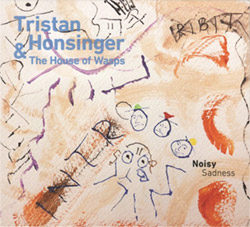
![Lindorff-Ellery, Evan: Church Recordings from Monhegan [CASSETTE]](https://www.teuthida.com/productImages/misc4/35949.jpg)
![Schindler, Udo / Werner Dafeldecker / Gunnar Geisse: Travelling Sound Images - Cognitive Transfers [Trio]](https://www.teuthida.com/productImages/misc4/35767.jpg)

![Egberth, Dennis: The Dennis Egberth Dynasty [VINYL]](https://www.teuthida.com/productImages/misc4/35549.jpg)


![Schindler, Udo / Rieko Okuda / Eric Zwang Eriksson: Disturbed Terrains [2 CDs]](https://www.teuthida.com/productImages/misc4/35330.jpg)






![Olencki, Weston : Pearls Ground Down To Powder [VINYL]](https://www.teuthida.com/productImages/misc4/35956.jpg)
![Myers, David Lee: Oculus [2CDs]](https://www.teuthida.com/productImages/misc4/35857.jpg)


![dustsceawung: dustsceawung [CASSETTE w/ Download]](https://www.teuthida.com/productImages/misc4/35753.jpg)




![Halls of the Machine: Atmospheres For Lovers And Sleepers [CASSETTE w/ DOWNLOAD]](https://www.teuthida.com/productImages/misc4/35806.jpg)



![AHC (Alexander Cooper): Lase [2 CDs]](https://www.teuthida.com/productImages/misc4/35754.jpg)



![Fagaschinski, Kai / Yan Jun : Graveyard Processions [VINYL w/ DOWNLOAD]](https://www.teuthida.com/productImages/misc4/35474.jpg)
![Brant, Cody / Carl Kruger: Smoke Detail [CASSETTE w/ DOWNLOAD]](https://www.teuthida.com/productImages/misc4/35551.jpg)








![Zorn, John / JACK Quartet: The Complete String Quartets [2 CDs]](https://www.teuthida.com/productImages/misc4/35609.jpg)

![Lonsdale, Eden: Dawnings [2 CDs]](https://www.teuthida.com/productImages/misc4/35480.jpg)







![Sanna, Claudio: Compositori Sardi Contemporanei II [2 CDs]](https://www.teuthida.com/productImages/misc4/35317.jpg)







![Zurria, Manuel: Fame di Vento [3 CDs]](https://www.teuthida.com/productImages/misc4/35167.jpg)

![Granberg, Magnus / Nattens Inbrott / Skogen: Holde Traume, Kehret Wieder! [2 CDs]](https://www.teuthida.com/productImages/misc4/35038.jpg)

![Electric Bird Noise / Derek Roddy: 8-10-22 [CD EP]](https://www.teuthida.com/productImages/misc4/35970.jpg)








![Elephant9 : Mythical River [VINYL]](https://www.teuthida.com/productImages/misc4/34624.jpg)



![Elephant9 with Terje Rypdal: Catching Fire [VINYL 2 LPs]](https://www.teuthida.com/productImages/misc4/35355.jpg)
![Deerlady (Obomsawin, Mali / Magdalena Abrego): Greatest Hits [VINYL]](https://www.teuthida.com/productImages/misc4/34876.jpg)







![Surplus 1980: Illusion of Consistency [CD]](https://www.teuthida.com/productImages/misc4/35069.jpg)
![Staiano, Moe: Away Towards the Light [VINYL + DOWNLOAD]](https://www.teuthida.com/productImages/misc4/35037.jpg)



![Caveira (Gomes / Sousa / Abras / Ferrandini): Ficar Vivo [VINYL]](https://www.teuthida.com/productImages/misc4/34643.jpg)
![Coley, Byron: Dating Tips for Touring Bands [VINYL]](https://www.teuthida.com/productImages/misc4/17906.jpg)

![Lost Kisses: My Life is Sad & Funny [DVD]](https://www.teuthida.com/productImages/misc4/lostKissesDVD.jpg)